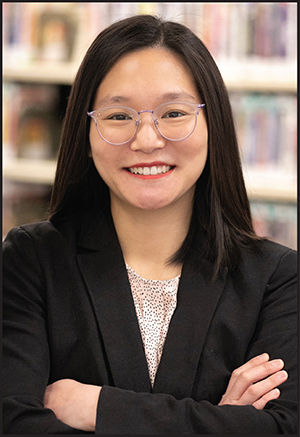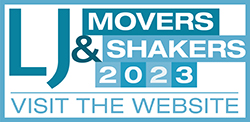Amy Kyung-Eun Breslin | Movers & Shakers 2023—Educators
“Literacy justice is critical to social justice,” insists Amy Kyung-Eun Breslin, whose days are spent out in her community spearheading branch-style literacy programs at schools and other stakeholder venues—and busting through access barriers.
 |
CURRENT POSITIONOutreach Librarian, Lorain Public Library System, OH DEGREEMLIS, Kent State University, 2021 FAST FACTBreslin was just elected to the 2023–25 American Library Association Asian/Pacific American Librarians Association (ALA APALA) Executive Board. FOLLOWInstagram @amykbreslin Photo by Robert Musser |
Stereotype Smasher
“Literacy justice is critical to social justice,” insists Amy Kyung-Eun Breslin, whose days are spent out in her community spearheading branch-style literacy programs at schools and other stakeholder venues—and busting through access barriers. “We bridge the transportation barrier by bringing programs and services to community members where they are,” she says.
A prime example is her practice of partnering with multilingual community organizations on their grounds, where they’re comfortable. “That’s provided tremendous opportunities for growing the library’s reach while honoring the languages and cultural dynamics of our users and nonusers,” says Breslin.
And her passion for justice around literature has yielded incredible results beyond her community as well. Along with her nominator, Sarah Park Dahlen, associate professor at the University of Illinois Urbana-Champaign, Breslin created the APALA Rubric to Evaluate Asian American and Pacific Islander Youth Literature. The guide details criteria with which to identify common Asian and Asian American stereotypes in young people’s titles. Breslin led dissemination efforts with numerous presentation proposals; among the institutions and organizations eager to host Breslin and Dahlen at conferences were the University of Wisconsin–Madison Information School, the University of Illinois School of Information Sciences Center for Children’s Books, and the Association for Library Services to Children.
Before long, the two were receiving unsolicited invitations to present. Additionally, that unique rubric will soon be published by Library Quarterly. “We’ve heard from countless librarians, K–12 teachers, and publishing industry employees who use the rubric daily to inform their work,” says Dahlen.
Add Comment :-
RELATED
ALREADY A SUBSCRIBER? LOG IN
We are currently offering this content for free. Sign up now to activate your personal profile, where you can save articles for future viewing









